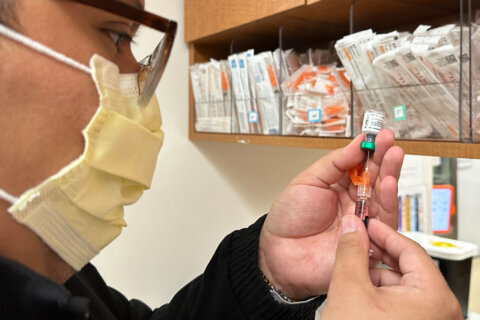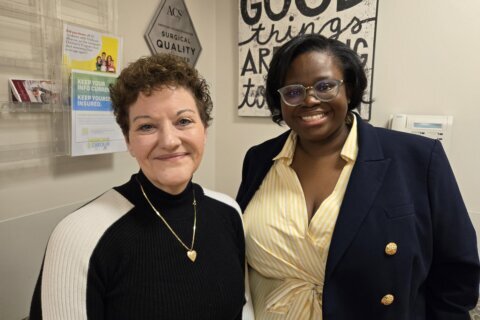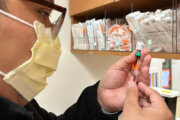WASHINGTON — There is no magic pill, app or puzzle to prevent your brain from changing as you age.
From the time you are born until the day you die, the brain is constantly evolving. It’s a process known as “brain plasticity,” and brain health expert Jane Tilly says it’s critical to know that not all age-related changes are a sign of concern.
“It’s important to know that most older adults do not have a dementia like Alzheimer’s disease, but a lot of people fear getting it because of the loss of independence and other things that can come with that disease,” says Tilly, who is with the U.S. Department of Health and Human Services’ Administration for Community Living.
With boomers caring for aging parents, and many boomers aging themselves, Alzheimer’s disease and dementia are top of mind for many Americans. According to a Roper survey, 71 percent of adults say they “worry most” about not being alert and experiencing memory loss as they get older.
But Tilly says much of that worry is unnecessary. Instead, it’s important to know what to expect as you age and make a few lifestyle changes to keep your brain as healthy as possible.
“Functions begin to decline over time, but it’s very slow and very gradual, unless someone has a brain disease or some kind of other condition that affects their thinking and learning and remembering,” Tilly says.
According to the Administration for Community Living’s “What is Brain Health?” campaign, it’s normal to notice a decline in short-term memory in your 40s and 50s. Between 60 and 70, cognitive processing speed may take longer as some parts of the brain may be shrinking. But these changes are not red flags.
“By and large as we get older, people slow down a little bit, but if they don’t have any disease, they’re able to manage their lives and operate just like the rest of us do in our lives,” Tilly says.
In recent years, supplements, games and resources claiming to prevent age-related dementia have flooded the market. And while puzzles and games may be entertaining, Tilly says not to waste your money on their health claims.
“The kinds of things to watch out for are any kinds of promises that people can prevent or cure Alzheimer’s disease,” says Tilly, who adds that researchers all over the world are working around the clock on prevention and treatment efforts. “No one knows how to do that right now.”
A healthy lifestyle is the best medicine to help your brain age healthily. A diet full of fruits and vegetables, a moderate amount of exercise and an adequate amount of sleep all help to keep your brain in optimal shape.
“Pretty much anything you do to try to keep your heart healthy is likely to be able to help you keep your brain healthy,” Tilly says.
Staying connected with others, engaging in new activities and constantly learning new things also keeps your brain in top shape.
Tilly says it’s also important to keep an open dialogue with your primary care physician — especially if you have a family history of Alzheimer’s disease or are concerned about your cognitive functioning. A doctor can help you distinguish normal changes related to aging from early signs of dementia.
And remember, an aging brain is not a failing brain. After all, with age comes wisdom.
The “What is Brain Health?” campaign offers evidenced-based resources, tips and advice for adults looking to promote their brain health. Visit www.brainhealth.gov for more information.







